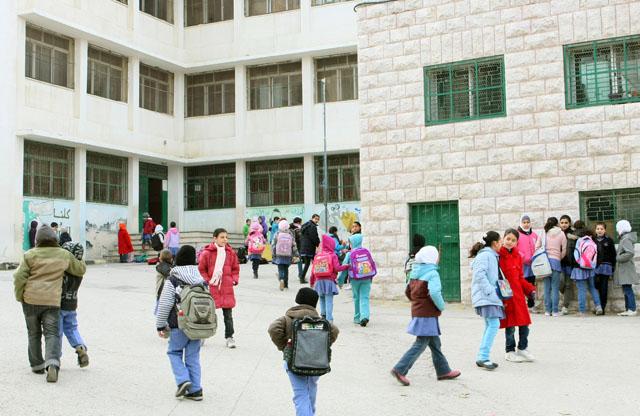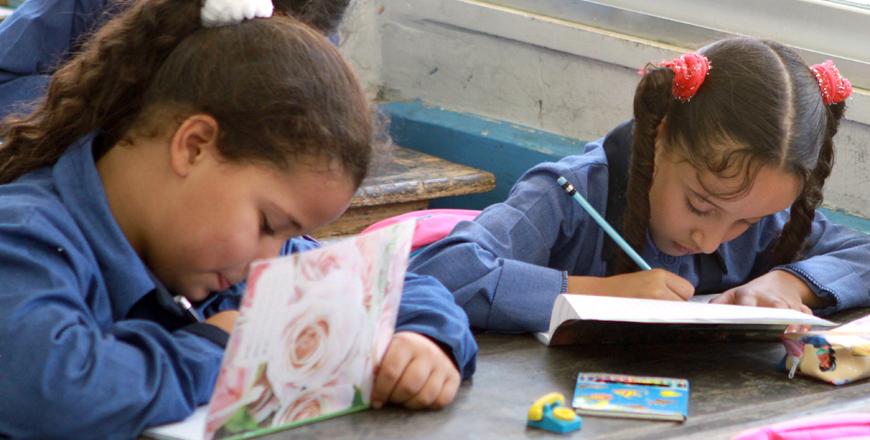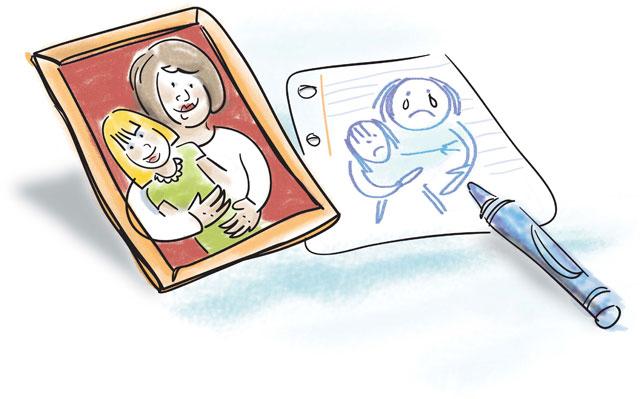You are here
More counsellors needed at public schools — educators
By Khetam Malkawi - Apr 24,2014 - Last updated at Apr 24,2014

AMMAN — The shortage of counsellors at public schools prevents students who seek help from getting the needed attention, Education Ministry employees said on Thursday.
Ahmad Hassan, a member of the ministry’s counselling department, said schools that have less than 250 students do not have counsellors in accordance with ministry regulations.
However, there are schools where the number of students sometimes reaches 1,000 with only one counsellor.
Providing assistance to students, regardless of whether their problem is related to issues at home or in school, requires more than one counsellor, Hassan pointed out.
“This is a burden on counsellors as they have many other tasks to do as well,” he told The Jordan Times during an activity organised at Princess Basma Comprehensive Public School in Amman’s Abu Nseir neighbourhood.
The Kingdom’s public schools organised activities on Thursday to promote the “Maan, [together] Towards a Safe School Environment” initiative that seeks to eliminate all types of violence in schools.
According to counsellors and administrators interviewed by The Jordan Times, a counsellor plays the greatest role in educating students and teachers about their rights as well as dealing with incidents related to student-to-student violence or teacher-to-student issues.
Alia Hamawi, a counsellor at the Princess Basma school, said verbal violence is most prevalent at girls’ schools.
Hamawi said the school, which has 1,600 students, is one of the few that has two counsellors, “but still, this is not enough.”
“Our job is not only to create awareness on the Maan campaign, but we also have other tasks and activities,” she told reporters.
Drop in violence
Abdul Karim Yamani, head of the university district education directorate, said since the launch of the campaign, the number of disciplinary councils has dropped in the directorate, which has 67 affiliated schools.
“Annually we used to conduct between 60 to 70 disciplinary councils, but after the launch of the campaign, the number has dropped to seven or eight,” he told reporters during a tour of schools in Amman organised by UNICEF.
Although he did not provide figures, Yamani noted that most of the cases annually reported in schools are related to verbal violence.
There are a few cases of sexual violence, but they are dealt with on the spot, he added.
Although violence against students has dropped, there is violence against teachers, according to Hanan Hussein, a member of the university district counselling department.
“Over the past 10 days 12 cases of violence against teachers were reported,” Hussein told The Jordan Times, adding that the Maan campaign should tackle this issue as well.
“We also need more cooperation from families, to educate their children at home about mutual respect and how they should treat their teachers,” she noted.
Figures
Physical abuse at the Kingdom’s schools was reduced by 11 per cent in 2012 compared to the previous three years and after the implementation of the Maan campaign, according to UNICEF figures issued last year.
According to the UN agency, physical violence in school went down from 40.3 per cent to 29.3 per cent, while verbal abuse dropped from 44.8 per cent to 38.2 per cent.
The nationwide campaign was launched in 2009 with the aim of reducing violence against children in schools by 30 per cent.
The campaign was initiated by the Education Ministry and UNICEF following the release of a national study in 2007 that revealed high rates of violence against children in school.
The 2007 study, conducted in collaboration with UNICEF and the National Council for Family Affairs, indicated that more than two-thirds of children in Jordan are subjected to verbal abuse by their parents, while 57 per cent experience physical abuse at the hands of their schoolteachers and administrators.
The study, which covered 64,119 students, revealed that the most common form of verbal abuse was shouting (45 per cent), while 40 per cent of physical abuse involved punishment with a stick.
Related Articles
AMMAN — Verbal and physical violence in the country’s schools dropped between 2009 and 2014 following the implementation of a nationwide cam
AMMAN — Although there are positive signs related to the reduction of violence in the Kingdom’s schools after implementing a nationwide camp
AMMAN — In an ambitious new programme, UNICEF Jordan seeks to engage journalists in addressing the issue of violence against children in a s













